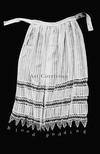
Blood Pudding
Art Corriveau
Vehicule Press
$17.95
paper
160pp
978-1-55065-228-4
Most of these 13 stories are rooted in Montreal, but Corriveau’s protagonists also take us to Amsterdam, Burkina Faso, Vermont, Texas, and London, among other places. The author’s experience as a travel writer comes in handy here; settings are established with an understated deftness, using just the right amount of specificity and detail to give them an authenticity that strengthens the overall construction of each narrative. Surprisingly, it is Montreal, Corriveau’s favourite setting in Blood Pudding, which takes the most time to become convincing.The author begins with more familiar tropes – language divides, maple syrup, sex, winding staircases, to build his portrait of the city. While well-travelled, these paths are nonetheless well-navigated by Corriveau. The collection also strengthens the further one reads, as we begin to see the wide scope of voices, places, and unique conflicts that Corriveau conjures.
Corriveau’s characters are as varied as the settings they inhabit, but are bound together across the collection by themes of loss, estrangement, sickness, and deceit. Families figure strongly; often the stories demonstrate how interpersonal relationships are variously maintained or destroyed by the omissions and secrets these people carry. In “Mise en Abime,” one of the stronger stories for its circularity and gentle treatment of domestic alcoholism, a woman discovers a hidden collection of bottles belonging to her husband, who has claimed to be dry for nine years, and wonders how to confront him. “Loss of Gravity” is a touchingly portrayed exploration of grief, in which a young widow escapes to Cape Cod and finds herself taken in by a local restaurant staff as she tries to come to terms with her loss. Also nice to see is the high degree of queer content peppering the stories, in both the foreground and background.
While Corriveau sometimes seems to be drawn to more exotic characters, such as the jaded male sex worker in “With Mirrors,” and a former gay porn star in “Pegasus’ Missing Wing,” his confident voice, paired with a restrained and minimal prose style, manages to carry these flourishes convincingly. “Lurid, Psychotic Colours” treats us to a blind woman’s experience working in a bathhouse in Amsterdam; she lies compulsively about herself when she meets an intriguing stranger in a café. Here Corriveau does a wonderful job of rendering his protagonist’s point of view without sentimentalizing or embellishing it.
Overall, these stories are convincingly rendered, with a quiet and controlled use of language that persuasively evokes place and character. Punctuating these realist portraits are moments of fantasy and escapism, and Corriveau is at his best when he allows his characters to float momentarily outside of the confines of their settings and dream. These moments provide a lush contrast to the estrangement and unspoken tensions between characters throughout Blood Pudding, and they succeed so well because the author keeps them tight and spare. Corriveau has penned a rich and varied contribution to the short story form, well worth the read. mRb






0 Comments